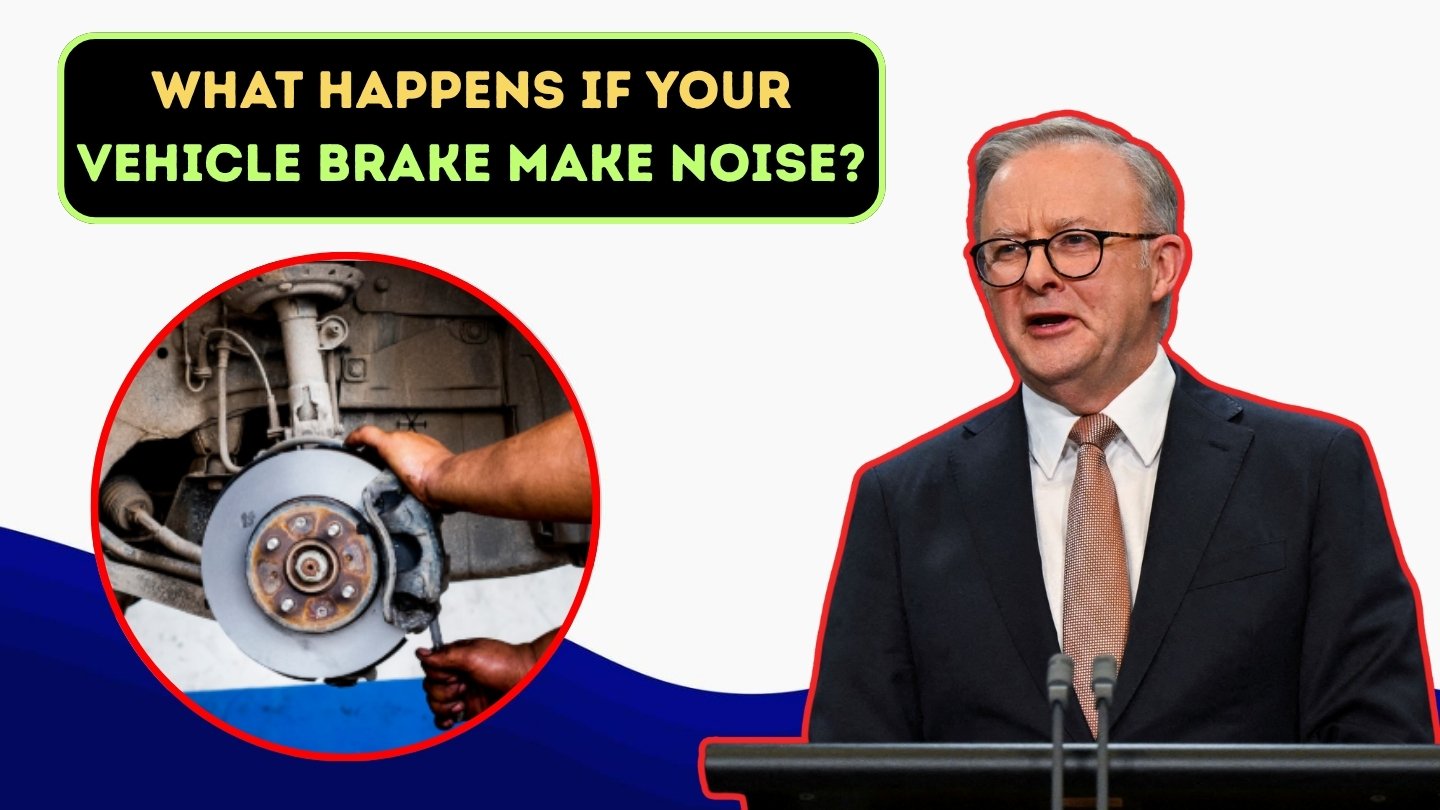Traffic rules in Australia are not static; they evolve with time to address new challenges, safety concerns, and even environmental factors. One of the latest updates has sparked a lot of discussion: what happens if your vehicle’s brakes make noise? It may sound like a minor issue at first—after all, squeaky brakes are common—but under new traffic regulations, noisy brakes can actually get you into trouble.
So, let’s break this down in plain language, because honestly, it’s not just about irritating sounds anymore. It’s about safety, responsibility, and compliance with modern road laws.
Why Are Brake Noises Even a Concern?
Let’s be real—most of us have heard that high-pitched squeal or grinding sound from a car’s brakes, either our own or someone else’s. Sometimes it’s just a harmless squeak caused by dust or moisture. But other times, it’s a red flag for worn-out brake pads, poor maintenance, or even mechanical failure waiting to happen.
From the authorities’ perspective, brake noise isn’t only about annoyance. It’s about what that noise represents: a vehicle that might not be roadworthy. And an unroadworthy car is a potential hazard for everyone on the road.
The New Traffic Rule in Focus
Under the new rule changes across Australia, if your brakes are excessively noisy or clearly defective, you could face fines, penalties, and even orders to get your vehicle repaired. Law enforcement officers now have more authority to act on brake-related noise complaints.
Here’s how it works:
- Spot Inspections: If police or transport officers notice unusually loud braking sounds, they can pull you over.
- Defect Notices: You may be issued a defect notice, which basically means you’ll need to get the brakes fixed and provide proof before your car can legally return to the road.
- Fines: In certain states, fines can range from $200 to over $500 depending on the severity. Repeated offenders may even face harsher penalties.
- Registration Risks: If the issue isn’t addressed, your vehicle’s registration could be suspended.
To be fair, these changes aren’t designed to nitpick drivers or target harmless squeaks. They’re meant to clamp down on dangerous neglect, where noisy brakes signal a genuine safety threat.
But What Counts as “Noisy Brakes”?
This is where some confusion kicks in. A light squeak when your car is wet in the morning? Probably not a big deal. But constant screeching, grinding metal sounds, or loud squeals every time you brake—those are the kinds of noises that get attention.
Authorities generally look for:
- Consistent grinding sounds (indicating metal-on-metal contact).
- Loud squealing that continues even after regular use.
- Brakes that clearly affect road safety, like causing reduced stopping performance.
So yes, there’s a bit of judgment involved, but the idea is simple: if it’s loud enough to be noticed regularly, it’s probably a problem.
Why This Rule Actually Makes Sense
Let’s think about it. Brakes are the most critical safety feature of any vehicle. If they’re compromised, even slightly, the risks are enormous—not just for you, but for pedestrians, cyclists, and other drivers too.
Honestly, ignoring noisy brakes is like ignoring a smoke alarm that keeps chirping. Sure, it might just be a battery issue, but what if it’s not? That’s the logic behind this rule. Authorities would rather deal with minor inconveniences now than catastrophic accidents later.
What Should Drivers Do Now?
If you own a car in Australia, here’s what you should be doing under this rule change:
- Don’t Ignore Noises – If your brakes squeak or grind regularly, book a mechanic appointment.
- Schedule Regular Servicing – Most brake pads last between 30,000 to 70,000 km, depending on driving style. Don’t wait until the last second.
- Stay Roadworthy – Remember, noisy brakes can now lead to fines, so it’s better (and cheaper) to fix the issue early.
- Keep Records – If you’ve recently had brakes serviced, keep receipts. They may help if questioned during an inspection.
The Bigger Picture
This new traffic rule is part of a broader push in Australia toward road safety and environmental awareness. Excessive brake noise doesn’t just mean danger—it can also contribute to noise pollution, which is something urban authorities are trying to reduce.
On the flip side, some drivers feel this is just another way to hand out fines. But when you look at the stats on accidents caused by mechanical failures, noisy brakes being a telltale sign makes more sense than it seems at first.
So, what happens if your vehicle’s brakes make noise in Australia now? In short: you could face fines, defect notices, and mandatory repairs. But more importantly, noisy brakes are a sign you shouldn’t ignore anyway.
This isn’t just about obeying the law—it’s about protecting yourself and everyone else on the road. To be fair, rules like these can feel strict, but they’re ultimately a nudge to remind us of something simple: your brakes are your lifeline. Don’t take them for granted.
FAQs
Q1: Will I get fined for a light squeak in my brakes?
Not necessarily. Minor, temporary noises usually aren’t penalized unless they’re persistent or clearly unsafe.
Q2: Can police really pull me over just for noisy brakes?
Yes. If the noise is obvious and suggests a defect, officers can inspect and issue a defect notice.
Q3: How do I avoid fines under this rule?
Simple—maintain your car. Get your brakes checked regularly and don’t ignore persistent noises.

